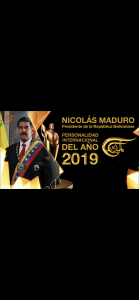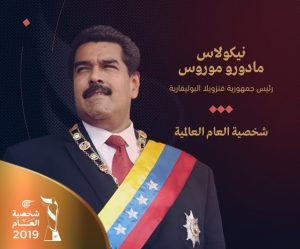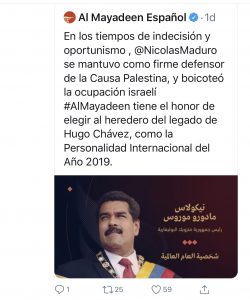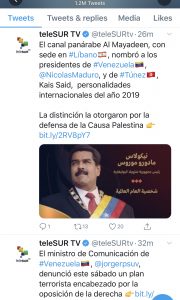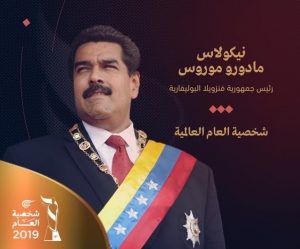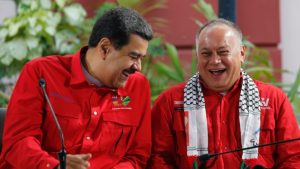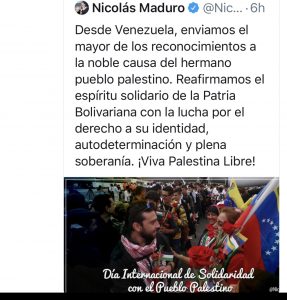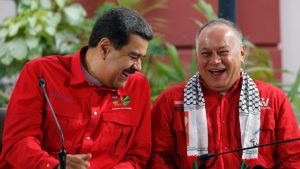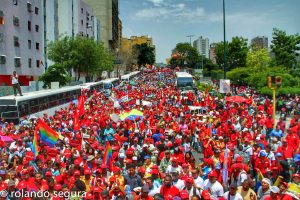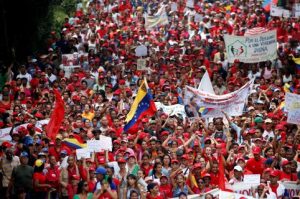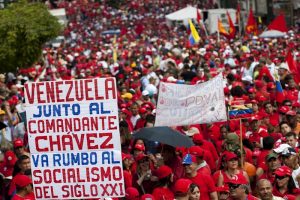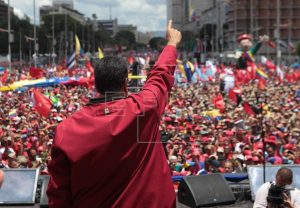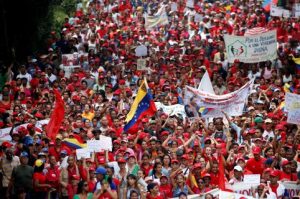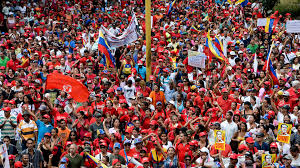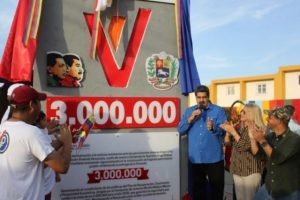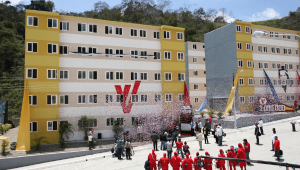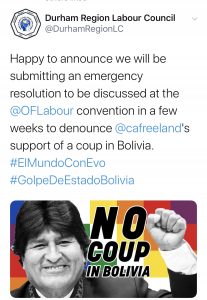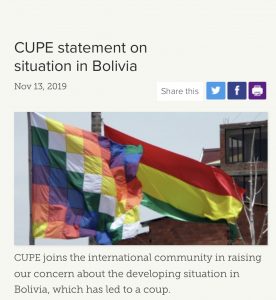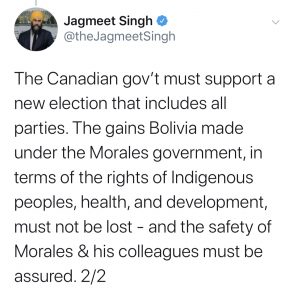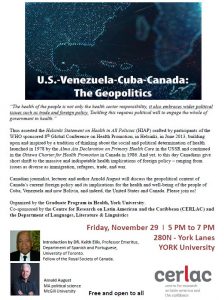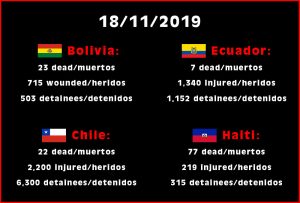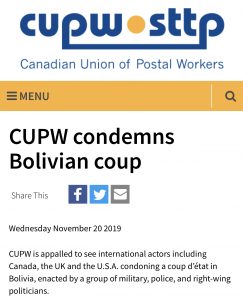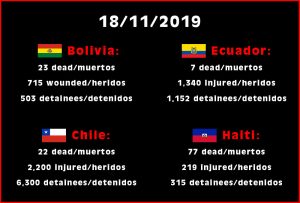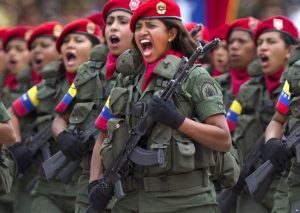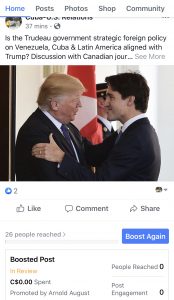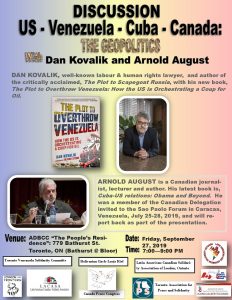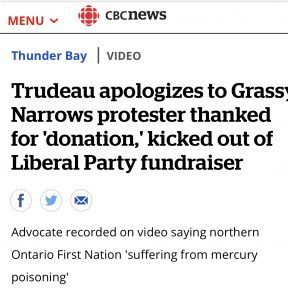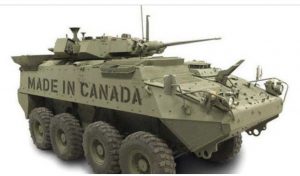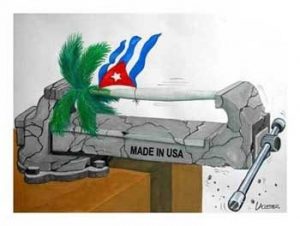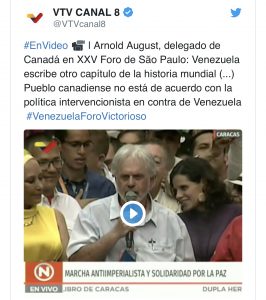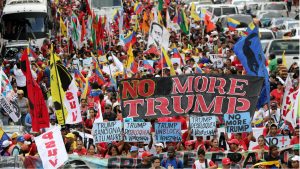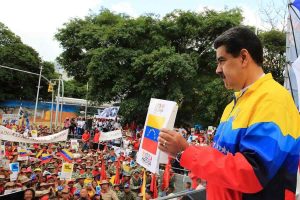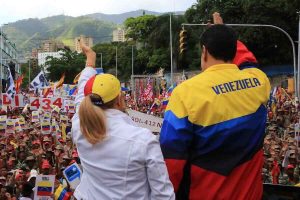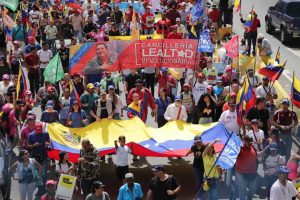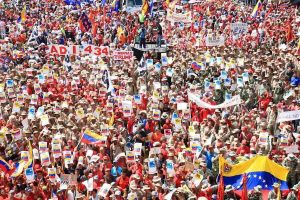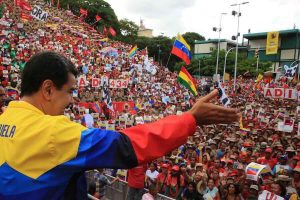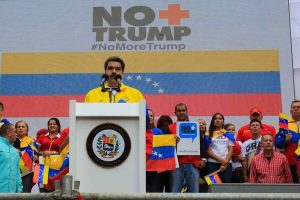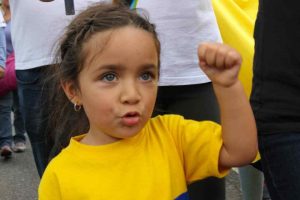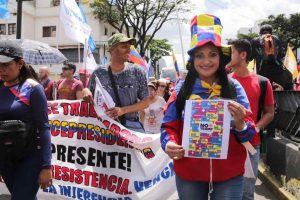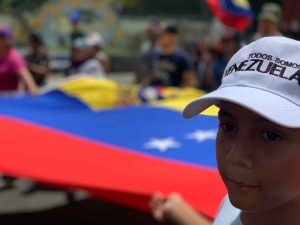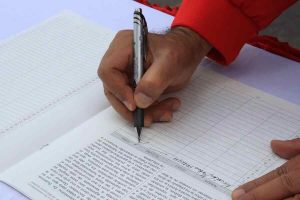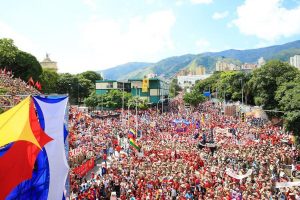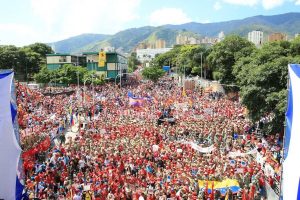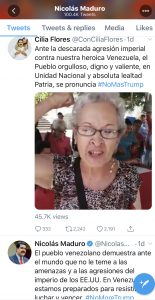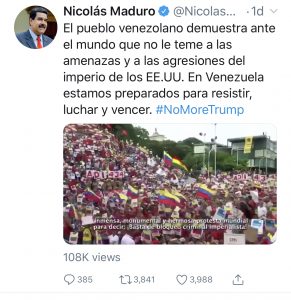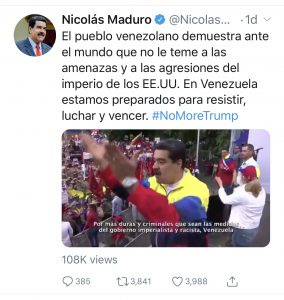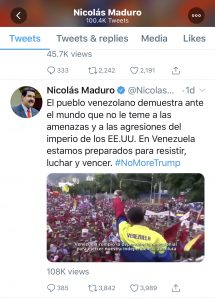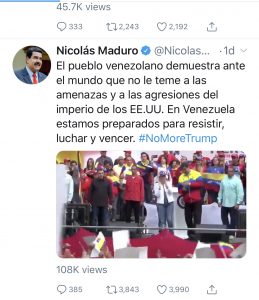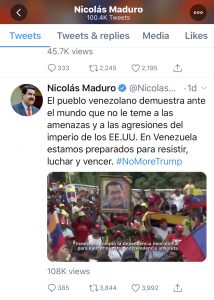Adán Chávez Frías
@Adan_Coromoto
Los desafíos del 2020 y el legado de Chávez
Retomando nuevamente nuestro Sentir Bolivariano, después de una breve pausa para el compartir en unión familiar, quiero saludar a mis lectoras y lectores, deseándoles un año de bienaventuranzas, paz y armonía, para continuar enfrentando los grandes retos que seguimos teniendo en este camino de transición hacia el socialismo.
Estamos iniciando un nuevo año, de enorme trascendencia para el futuro del proceso continental de liberación nacional, la vía que nuestros Pueblos eligieron para ir socavando la estructura y la lógica del neoliberalismo salvaje, y seguir construyendo las bases para edificar Estados democráticos y populares. No debemos perder, bajo ninguna circunstancia, por más complejos que se presenten los escenarios en la coyuntura económica, la perspectiva revolucionaria: sólo avanzando hacia el socialismo los Pueblos del mundo tendrán esperanza. Como lo dijo el Comandante Chávez, en la clausura de la IV Cumbre de Petrocaribe en el 2007: “el socialismo es el único camino hacia la justicia, hacia la igualdad, hacia la libertad. No hay otro camino que el socialismo. No hay terceros caminos posibles.”
El capitalismo sigue demostrando que, lejos de resolver los enormes problemas de la humanidad: la pobreza, la desigualdad social, el desempleo y la destrucción del ecosistema; cada vez los agrava más, en favor de las grandes corporaciones. Y lo dejó muy claro apenas iniciado el año, asestando un duro golpe a la paz y la estabilidad mundial, tras el bombardeo al aeropuerto de Bagdad ordenado por la administración de Trump para asesinar al comandante iraní Qasem Soleimani, obedeciendo a sectores extremistas del Partido Republicano relacionados con la industria militar. Es un indicio más del endurecimiento de la política de agresión de los EEUU contra los Pueblos del mundo no alineados con sus intereses. En ese sentido, el llamado es, como siempre, a estar atentos ante posibles nuevas arremetidas injerencistas y violentas en nuestro Continente.
Los desafíos de la Revolución Bolivariana para este año se centran en derrotar la conspiración tutelada desde el Departamento de Estado Norteamericano, que el año pasado, a pesar de los intentos desestabilizadores, sabotajes, salidas golpistas y magnicidas, guerra mediática y económica; no tuvo éxito ante la heroica resistencia del Pueblo de Bolívar y Chávez.
El compañero Presidente Nicolás Maduro subrayó de manera contundente: “el 2020 es el año de la estabilidad y de la prosperidad en todas las dimensiones de la vida nacional. En Venezuela tenemos lo necesario para lograrlo”. Es fundamental asumirlo como un gran reto colectivo y no dejarse engañar por quienes, desde los medios de la oligarquía nacional e internacional, intentan generar desconcierto y angustia en la población. La inflación inducida se ha venido enfrentando con mucha determinación, y este año será vital para lograr la recuperación definitiva de nuestro aparato agroproductivo y, por ende, de nuestra economía nacional. Así como no hay revolución verdadera sin revolución cultural, no la hay sin una economía sana, estable, anticapitalista, que le asegure al Pueblo “la mayor suma de felicidad posible”.
También en lo político hay grandes retos. La estabilidad económica requiere estabilidad política, y se hace necesario que todos los sectores democráticos del país, tanto del Gobierno Revolucionario como de la oposición crítica y no violenta (que no comparte nuestra concepción ideológica pero apuesta por la vía constitucional y el diálogo), se sumen al debate con un solo objetivo: fortalecer la confianza en nuestra democracia popular. Por eso es importante que la venidera batalla electoral de cara a la Asamblea Nacional, sea asumida con dignidad, con patriotismo, para dar una estocada final a las pretensiones de salidas golpistas que estimulan sectores ultraderechistas.
Como se dijo antes, estos retos no son sólo del Gobierno Revolucionario. La dirigencia del Partido Socialista Unido de Venezuela (PSUV) y del Gran Polo Patriótico, la militancia y todo el Pueblo trabajador, deben asumir su papel histórico de organización y movilización para la defensa de la Patria. La especulación criminal será derrotada, definitivamente, sólo con la participación activa del Poder Popular, movimientos sociales, trabajadoras y trabajadores del país. Debe ser el año de la unidad nacional para vencer la conspiración multifactorial e impulsar el progreso y el bienestar social.
Grandes desafíos requieren tempranas acciones. En ese sentido, ya para este mes de enero, los movimientos sociales y políticos del mundo se reunirán en Caracas en el marco del Foro de Sao Paulo (FSP), para discutir las tareas inmediatas en la lucha permanente contra el imperialismo, revisar los planes y acordar estrategias concretas. Es una responsabilidad de gran trascendencia, que debemos asumir con disciplina y espíritu internacionalista.
Y están las tareas permanentes, que no deben descuidarse un solo instante. La formación y organización de nuestro Pueblo, de nuestra juventud, orientando los esfuerzos a la consolidación de la conciencia revolucionaria y humanista y la defensa del legado del Comandante Hugo Chávez, para que las futuras generaciones “escriban la historia en un mundo mejor”, como cantó Alí Primera.
Quiero terminar estas líneas con nuestro Comandante Eterno, refiriéndose en el preámbulo del Plan de la Patria, a los retos que nos ha tocado enfrentar en estos tiempos:
“…a la tesis reaccionaria de Imperio y de la burguesía apátrida contra la Patria, nosotros y nosotras le oponemos la tesis combativa, creativa y liberadora de la Independencia y el socialismo como proyecto … [dialéctico para la transformación]: la Independencia no ha terminado y la forjamos en nuestra lucha diaria y permanente. Nos toca realizar plenamente el sueño libertario que nunca ha dejado de palpitar en la Patria y que hoy está latiendo de manera incesante. Así lo creo desde la fe combativa y la razón amorosa que me alienta: la herencia heroica nos obliga y tal exigencia es bandera y compromiso para nosotros y nosotras. Desde el tiempo que nos ha tocado vivir es preciso honrar los retos; tantos sacrificios no pueden ser en vano, hacerlos carne y sangre de la vida nueva tiene que seguir siendo el horizonte que nos llama y desafía”.

